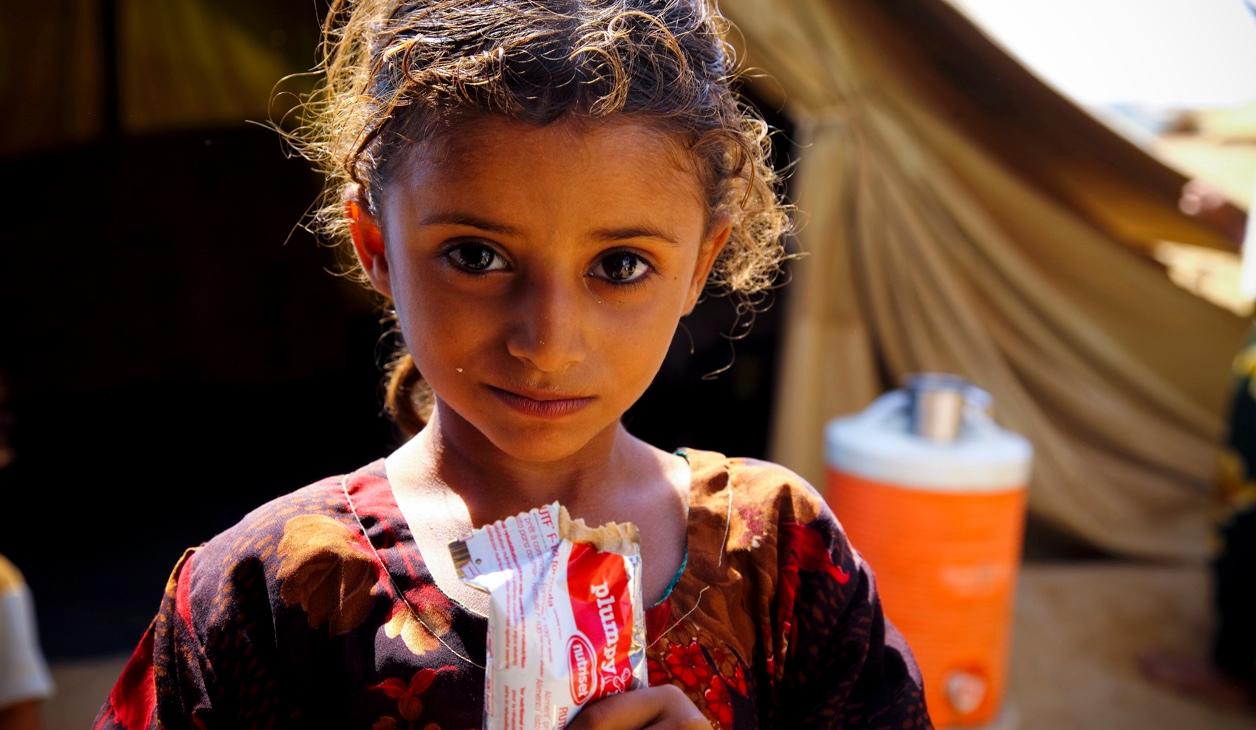This is the worst thing about Yemen right now
This is a 5-year-old girl in Yemen diagnosed as malnourished. She was given a pink wristband to wear to show she has not been getting enough to eat.
Editor's note: This is Chatter, our morning rundown of what you need and want to know around the world. Fortunately for us all, you can have Chatter emailed to you every day. Just sign up here!
NEED TO KNOW:
There are a lot of problems in Yemen.
It is one of the world's poorest countries. That makes it one of the world's hungriest as well. And that makes it a good place for Al Qaeda to set up shop and recruit. Al Qaeda's presence then means Yemen is an important place for the United States to use its Predator drones.
To use its drones abroad the United States needs a friendly government, not necessarily a good government. And a not-so-good government is exactly what Yemen has, thanks in no small part to the United States and Saudi Arabia, which negotiated the deal that brought the current president to power.
An ineffectual government backed by foreign powers raised the ire of a rebel group known as the Houthis. The Houthis have fought their way through the capital and beyond. They are joined by Yemen's old president — who was ousted in a popular protest movement in 2011 — and his army loyalists. Ali Abdullah Saleh was also an ally of the United States and Saudi Arabia. And he also oversaw an ineffectual and corrupt government. For three decades.
The military advance by the Houthis, who are Shia, is exactly what Saudi Arabia hoped to avoid. It worries the Houthis are aligned with Iran, Saudi Arabia's Shia nemesis. So Saudi Arabia launched airstrikes on Yemen to drive them back. The strikes have slowed the Houthis somewhat and today injured one of its commanders. But the airstrikes have also killed civilians, driving more Yemenis to sympathize with groups like the Houthis and Al Qaeda.
But here is the part that really matters: All of this is making one of the hungriest places in the world even hungrier. It is a famine-level humanitarian crisis, without the charity concerts.
WANT TO KNOW:
Mexican President Enrique Peña Nieto has made it his mission to take out the drug cartels. And on paper he's done an alright job. His security forces have arrested Joaquin “Chapo” Guzman, the head of the powerful Sinaloa cartel; Omar and Miguel Treviño, who head up the Zetas; and Servando “La Tuta” Gomez, who runs the Knights Templar.
That's an impressive feat that has hurt all of those cartels. But analysts worry the president has spent too much time going after the heads of these groups and not enough time attacking their infrastructure. As such, new gangs are simply moving in where the others have been forced out.
The Jalisco New Generation gang is now the fastest growing cartel in Mexico.
“It is like the proverbial hydra. When you chop off one head, another grows in its place,” a former DEA official told GlobalPost Senior Correspondent Ioan Grillo, who is based in Mexico City. “One issue is that while the Mexican government has done a good job hitting the kingpins, it also needs to go after the corrupt officials, money laundering, and the infrastructure of cartels.”
And what is especially scary about New Generation is its firepower. The cartel is actually running entire factories that churn out AR-15 assault rifles.
STRANGE BUT TRUE:
Uber is valued at $40 billion. And the way things are going, it's going to need every penny.
Since Uber doesn't operate as a normal taxi service and often forgoes taxi licenses for many of its drivers, legal hiccups have cropped up all over the world. Entire countries have banned the service. And numerous other cities from Mumbai to Anchorage are trying to do the same.
Legal battles are in so many different phases it can be hard to visualize the state of the company, where it is able to operate and where it isn't. So we made a map for you.
Every day, reporters and producers at The World are hard at work bringing you human-centered news from across the globe. But we can’t do it without you. We need your support to ensure we can continue this work for another year.
Make a gift today, and you’ll help us unlock a matching gift of $67,000!
